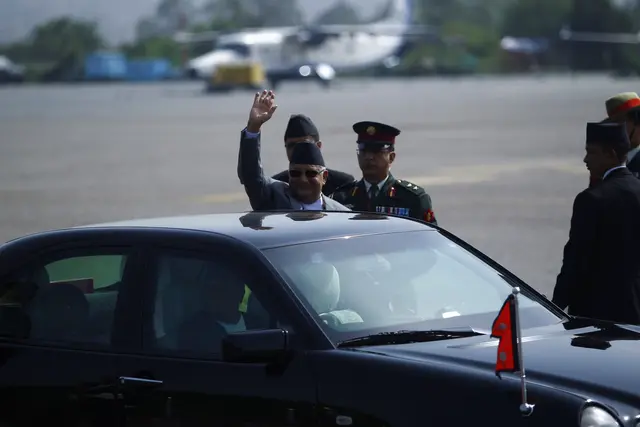Philippine President Benigno Aquino III embarked on a historic trip Monday deep inside the stronghold of the Moro Islamic Liberation Front (MILF) in Mindanao in the Southern Philippines to show his sincerity in bringing to an end the decades-old Muslim insurrection in the country.
Aquino, along with some of his top Cabinet officials, traveled to Camp Darapanan, the MILF-controlled enclave in the province of Maguindanao where he, along with MILF chairman Murad Ebrahim, launched Sajahatra Bangsamoro, a government social development project aimed in improving the lives of impoverished Filipino- Muslims and giving impetus to the ongoing peace negotiations with the MILF.
During his visit, Aquino symbolically turned over health insurance cards, vouchers for scholarship grants, and certificates of eligibility for livelihood training to MILF rebels and their families.
In his address at the launching ceremonies of Sajahatra Bangsamoro, Aquino said that the peace process should be completed before his tenure as president ends in 2016.
"We have just three years and four months left. We have to speed up everything we are doing to make this (peace) permanent," Aquino said.
On the eve of Aquino's visit, Ghazali Jaafar, MILF vice chairman for political affairs, said that President's visit to Camp Darapanan was another milestone in the MILF's quest for lasting peace.
"We hope his visit will give him the opportunity to see the real picture of the bigger portion of Mindanao, especially Muslim Mindanao where people are deprived and marginalized compared to their brethren in other parts of the island," Jaafar said.
Jaafar said the event was symbolic of governmental services to be extended to the Moro people.Other governmental agencies will also launch services, including educational, technical skills training, health and social welfare.
In October last year, President Aquino received Murad in Malacanang where the peace negotiators of the government and the MILF signed a framework agreement for the establishment of a Bangsamoro region in Mindanao as a first step to lasting peace on the island.
In l986, Aquino's mother, the late President Corazon Cojuangco- Aquino also visited Sulu, the southern tip of Mindanao and the then stronghold of the Moro National Liberation Front (MNLF), the forerunner of the MILF.
The visit of Mrs. Aquino paved the way for the negotiations between the MNLF then led by Nur Misuari and the government of former President Fidel Ramos that culminated in the signing of a limited autonomy agreement in 1996.
Ironically, it was the 1996 peace accord with the government that led some top MNLF top commanders, including Murad and Jaafar, to bolt from the main rebel group and formed the MILF as they vowed to continue the armed struggle against the Manila government.
In l998, when the President Joseph Estrada took over the presidency, he declared an all-out war against the MILF. In 2000, government forces captured Camp Abubakar, in Matanog town, also in Maguindanao, which was then the main MILF camp.
Estrada celebrated the fall of Camp Abubakar by feasting on beer and roast pig, both taboo for Muslims.
In late 2001, Estrada was toppled from office by a military- backed civilian street uprising that led to the installation in office of former President Gloria Macapagal-Arroyo.
During Arroyo's term as president, there were off-and-on negotiations with the MILF but these negotiations abruptly ended after the country's Supreme Court declared in 2008 as illegal and unconstitutional the memorandum of agreement on ancestral domain ( MOA-AD) that would have established the Bangsamoro juridical entity.
According to the state-run Philippines News Agency, some 150, 000 armed combatants from both sides and civilians have already been killed since the start of the Muslim rebellion in the early l970s.
The 12,000-strong MILF has originally demanded for an independent state for Filipino-Muslims in Mindanao. It has since softened its stance and agreed to the establishment of an autonomous political entity called Bangsamoro with sovereign powers akin to that of a federal state.
Under the political entity envisioned by the framework agreement, Bangsamoro, which literally means "nation of Moros," will be allowed to run its own affairs except in external defense, monetary and foreign affairs which would remain under the Manila government.
In the agreement, the Bangsamoro will adopt a ministerial form of government where representatives will be elected to the assembly, which will then elect its leader called the "chief minister."
The Bangsamoro will be governed by a basic law to be passed by the Philippine Congress and ratified by qualified voters of the affected areas in a plebiscite.
 简体中文
简体中文

